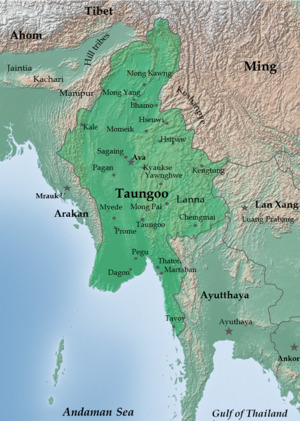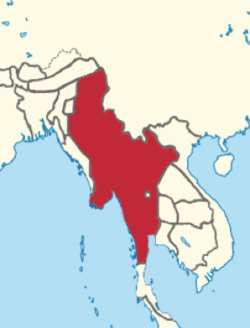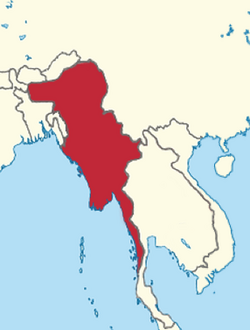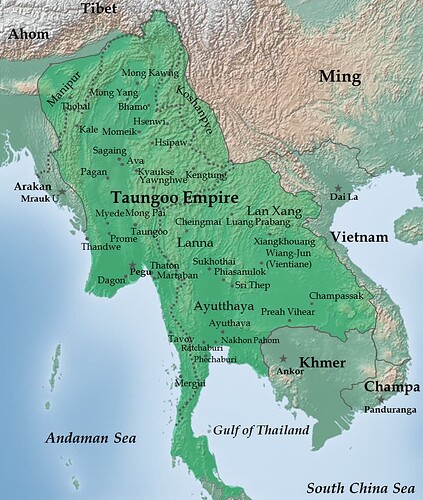I don’t want to be ###### ### you got a lot of altitude (« wikipedia is garbage ») for a « minor in history » that don’t understand the differences between « de facto » and « de jure »… It was independant « de facto » wayyy before 1648.
Really. Oh i don’t know. How about you look up the HLS if you can speak either german, italian or french. And then come and attempt to “well actually” me.
For reference in the article of the historic lexicon of switzerland:
- Viertens wurde mit der gängigen Schulbuchformel, wonach sich die Eidgenossenschaft 1499 “de facto” und 1648 “de iure” vom Reich getrennt habe, ein langer Prozess des Auseinanderdriftens zu aktiv-separatistisch gedeutet. Einerseits brauchten die einzelnen Orte ihren vom Kaiser privilegierten reichsunmittelbaren Status, um sich gegen benachbarte Dynastien zu behaupten. Andererseits nutzten die Eidgenossen die Zeiten, als kein Habsburger Kaiser war, zur Expansion auf deren Kosten (Erweiterung 1351-1353, Sempach 1386, Eroberung des Aargaus 1415). Zwar verweigerte sich die Eidgenossenschaft der Reichsreform von 1495 (Reichsgerichtsbarkeit, neue Steuern), doch blieben alte rechtliche Verbindungen intakt (Bestätigung kaiserlicher Privilegien für alle Orte bis 1566, für die Stadt St. Gallen bis 1642, für den Fürstabt von St. Gallen und weitere gefürstete Klöster bis 1797). Trotzdem behandelte der Kaiser die Eidgenossenschaft teilweise schon um 1500 diplomatisch wie eine fremde Macht. Mit der Exemtion vom Reich in den internationalen Friedensverträgen von 1648 (Westfälischer Frieden) erlangte die Eidgenossenschaft ― jedenfalls setzte sich diese, ursprünglich französische Interpretation durch ― die völkerrechtliche Anerkennung ihrer “Souveränität”. In der Mentalität vollzog sich diese Loslösung langsam: Zürich strich den Hinweis auf das Reich in seinem Bürgereid schon 1654, Solothurn 1681, Schaffhausen erst 1714. Der kontinuierlichen Entfernung vom Reich korrespondierte die Annäherung an Frankreich.*
It’s an interesting read and actually curated and not just regurgitated mytological nation building that wikipedia uses.
So we have de jure and de facto (both beeing tied rather considerably together in the history of the HRE) privileges and loyality proclamations well into the 18th century. But also parts of independence with the exemption from 1648.
As a Nation the old confederacy also got looked at from outside often as more homogenous than it was.
Really as a nation state you find switzerland only with the helvetic republic onwards 1798 allbeit it is arguably the case that there was already a somewhat distinct identity of beeing “swiss” around the 16th century.
European options :
- Polish (obviously needed)
- Danish
Revolutions :
- Prussia (from Polish, Swedes, Germans)
- Norway (from Danes, Swedes)
- Canada (add Danes)
- Caribbean Pirates (British, Dutch, Danes)
- Livonia (from Poles, Swedes, Russians)
Asian options :
- Persians (obviously needed)
- Omani (only “Arab” empire of the period)
- Qazaqs/Uzbeks (maybe)
- Thais (maybe)
- Koreans (maybe)
African options :
- Moroccans (obviously needed)
- Kongolese (for central Africa)
- Shona (for southern Africa)
Ideally all of these will be added eventually but the most logical next step at this moment would be to focus on the Asian continent as we haven’t had a new Asian civ for the longest time.
We already have Maltese civ in the game, who feel strange in the company of other European civs. I think the Swiss civ could be an interesting civ that would undoubtedly be less controversial than the Maltese civ.
I think it could be the last small civ from Europe - unless there are also Greeks, Belgians (although a revolution is enough - after all, this is how Belgium was created), Scots (though Stuart Royal House will suffice), Ruthenians (or Cossacks) and Sicilians (based on the unrepresented Kingdom of the Two Sicilies. They could have been the second civ in the KotM DLC instead of the Maltese). But the above optional civs have a much lower priority at the moment. DO NOT TAKE ALL THEM TO YOURSELF
yup, here we go again
Please, stop with the insignificant civs.
Malta has been enough of a mistake already. The ONLY Europeans civs worthy of inclusion that remain are the Poles and the Danes. Any other entity merits ONLY a revolution at the very best.
Read carefully what I wrote. These are just thoughts.
I decided that to represent the Scots it would be best to create the Stuart Royal House, and to represent the Belgians a revolution would be enough - preferably a two-stage one like the French Revolution.
Greeks and Ruthenians (Cossacks) could be an interesting civ, but it is not a high priority.
As for the Sicilians I mentioned, I would prefer a minor rework of the Maltese civ, so that they finally also represent the Kingdom of the Two Sicilies.
This is accurate. IF Tilanus would finally do propper reworks of some old civs. There certainly doesn’t need to be a swiss civ and malta in that context was a mistake. A propper german / HRE civ would be good enough but it would also have to be a “propper” one. The current rework is not adequate however. (Which also can be said about the british civ pretty much going over its parts willy nilly.)
Also italy is indeed missing the two sicilies part which was rather relevant to it’s history which is honestly a bit midboggling considering that it is a DLC-civ, but italy has other issues from a game design point of view.
You can never create a proper Germans civ any more than you can create an proper Indians civ. When creating a civ from Germany or India, you need to focus on a specific empire so that the civ has coherence and sense.
Therefore, the ideal civs from Germany would be Prussians civ and Austrians civ - the rest of the German minor powers can be represented by Minor Civilizations (Saxony, Bavaria, Hannover and Oldenburg -
this would definitely lack the Royal House of Württemberg (Swabia), the House of Nassau (Rhineland) and the House of Luxembourg (Bohemia)).
It would be the same in India, where Indians civ are just Mughals with content from other parts of the Indian peninsula + British Raj stuffed in.
Indians civ require much more work to be a correct and consistent civ (to become a complete Mughals civ) than Germans civ, which can be easily converted into Austrians civ. It would also be possible to create Indian DLC with adding Marathas, Bengalis and maybe also Punajbis civs + adding a lot of Indian maps with correct Indian Minor Civilizations.
So fixing the old mistakes of the past for Germans civ is just adding Prussians civ with the German States Age Up mechanic + a little makeup of the current Germans civ to make them Austrians civ. However, repairing the weak Indians Civ requires a lot of work (including creating the right idea, which is also difficult), which deserves its own DLC.
Please no. Prussia was in no way shape or form revolutionary. As a conservative autocracy it’s actually the opposite of revolutionary (same with their counterpart the Austrian Empire). Uprisings that did occur had the goal of uniting Germany, not splitting it up. Even the Frankenstein abomination that is the current Germans is better than trying to represent either Prussia or Austria as revolutions.
True. It is like adding the Maratha, Bengali, Punjabi and etc. revolutions (or something similar) to the current Indians civ - wouldn’t that make Indians umbrella civ even more irritating and incorrect?
Austria and Prussia as 101% monarchist empires with centuries-old heritage would be an insult and stupidity for them to present as revolutions.
The prussians fought numerous wars to get out from under their initial Polish and Austrian overlords.
“Revolution” in the context of Aoe3 does not have to mean some single/unique crazy event that popped the country into existence. It simply means that, for the period covered by the game, the prussians were a minor player and vassal to other entities. They only rose to prominence after the 7 years war which is way towards the end of the AoE3 timeline.
The period of 1500 to 1800 must not be forgotten when we think about which civ makes sense and which doesn’t.
No they didn’t. Brandenburg inherited Prussia when their ruling dynasty died out. It was a peaceful dynastic transfer, not a rebellion. Austria never ruled Prussia ever.
This is completely delusional. Prussia was kicking ass before Mexico was a twinkle in Cortez’s eye.
That’s solidly in the middle of the timeline. They can also have elements of the entire timeframe like Teutonic Knights and such.
This makes Maria Theresa really sad
Perhaps you are thinking of it’s predecesor, the State of the Teutonic order.
Anyways, as usual, I mention that von Clausewitz hinself said that the heart of Germany was in Vienna
You missed Burma, you can’t get Siam without Burma…
Toungoo Empire under Bayinnaung in 1580 CE.

The restored Taungoo or Nyaungyan dynasty c. 1650 CE.

Konbaung Empire in 1767

Konbaung Empire in 1824
In the second half of the 16th century, the Toungoo dynasty (1510–1752) reunified the country, and founded the largest empire in the history of Southeast Asia for a brief period. Later Taungoo kings instituted several key administrative and economic reforms that gave rise to a smaller, more peaceful and prosperous kingdom in the 17th and early 18th centuries. In the second half of the 18th century, the Konbaung dynasty (1752–1885) restored the kingdom, and continued the Taungoo reforms that increased central rule in peripheral regions and produced one of the most literate states in Asia. The dynasty also went to war with all its neighbours. The Anglo-Burmese wars (1824–85) eventually led to British colonial rule.`
Of course, we haven’t touched Asia since 2007… I think that if they finish Europe now, the next DLC is Asia for sure…
Yes, I thought they were going to include Poland with Italy, but considering that it ended up being a Mediterranean DLC, it is not bad that they included Malta, although Greece or Monaco could also have entered when facing the Mediterranean as well…
Of the big and important ones, yes… but there is no need to shut down if one day they decide to return to Europe again…
They can always introduce new Spanish and Italian cards to the Maltese…
Of course, for Germany and India you would need two complete dlcs… put Prussia and rename the Germans in Austrians and for the Indians put the Marathas and rename the Indians in Mughals (Bengali is not necessary because they were conquered in 1576 or were Mughal vassal states until the arrival of the EIC in 1757)…
Of course, besides the fact that Prussia only became an entity in 1701, although as you say it acquired its preeminence during the 7 Years’ War (1756-1763)… AoE 3 actually lasts until 1901/1922… so in reality it would be any civ between 1400 and 1900 (the Aztecs and Incas are there for a reason)…
In reality that was ducal Prussia within Poland until 1526 when it was ceded to Brandenburg…
Yes, actually the middle of the timeline would be during the 30 Years’ War (1618-1648), since the game starts in the 1400s…
Exactly…
Of course, it was the capital of the HRE for a reason…
Ich fühl mich repräsentiert und ehrlich gesagt hat sich bisher auch noch kein anderer Deutscher im Forum beschwert ^^'. Die Darstellung anderer europäischer Fraktionen im Spiel ist ja auch nicht gerade historisch akkurat… die Leute die auf ne stärkere österreichische oder preußische Identität pochen, haben auch meist ne sehr “eigenwillige” Vorstellung davon. Du hast aber recht, dass man Schweizer Elemente vergeblich sucht… sind ja nicht mal beim Söldnerlager vertreten
This is true. It should be called just ‘Independence’ or something as whilst we have true revs such as US, we also have Canada which just became self-governing (independent, kinda) and didn’t really revolt as well as Barbary States which is kinda hard to explain how they revolt from Malta!
In regards to Prussia/Austria it can be painted as a 'Prussian Allegiance’ / ‘Austrian Allegiance’ option button in the TC during the Fortress Age or just a ‘one or the other’ shipment choice to push them to one of two big German powers (along with nation-name change and flag). When one of these has been selected then you’d lose all perks of the current HRE Germans and get some slightly different traits.
Basically a true, individual civ version of Prussia and Austria ain’t going to happen. HRE is fine really as it is a legit way of grouping the Germans states (including Prussia lands)- it was a recognised organisation and heck, later on after Napoleon dissolved the HRE (and briefly replaced by a smaller Confederate of the Rhine), it was replaced by the German Confederation (containing Austria and Prussia in some form) until 1866. Germans saw themselves as part of their home state first, but always German after so there was always a shared culture.
The only real way of splitting, or rather giving a more focused nation to the Germans is within via new, more bespoke cards or with the revolution suggestion (again, not a ‘revolution’, rather a button to initiate a meta-civ change!).
No, the only real way to split the Germans is to make them separate civs. If that’s not going to happen then fine, leave it as umbrella HRE. But don’t put lipstick on a pig and call it the perfect compromise.
This is like playing as Italy early on and then deciding to downgrade to Sicily or the Papal States in the late game.
The only real way within the context of the game, currently. I’m not suggesting it as a perfect compromise - it’s literally the only way it’s going to happen in the confines of what we currently have, for better or worse. TBH, it’s best to just leave it as HRE.
Obviously individual civs is out of the question unless the Devs go back on what they originally said about the German civ.
Indians on the other hand could do with a split far more (and haven’t been outright denied it yet!) - Mughal & Maratha, or heck, just one consolidated Mughal. Seems a shame for the powerful empire of Maratha to be relegated to Marathan Thuggee & Catamaran.
I think that is somehow meant to represent Hospitaller control of Tripoli, which along with Malta had been given to them by the Spanish, and how after losing it to the Ottomans, it became a major base for the Barbary pirates.
It’s a bit of a stretch, indeed, but the Maltese didn’t really have many other alternatives for a revolution.
